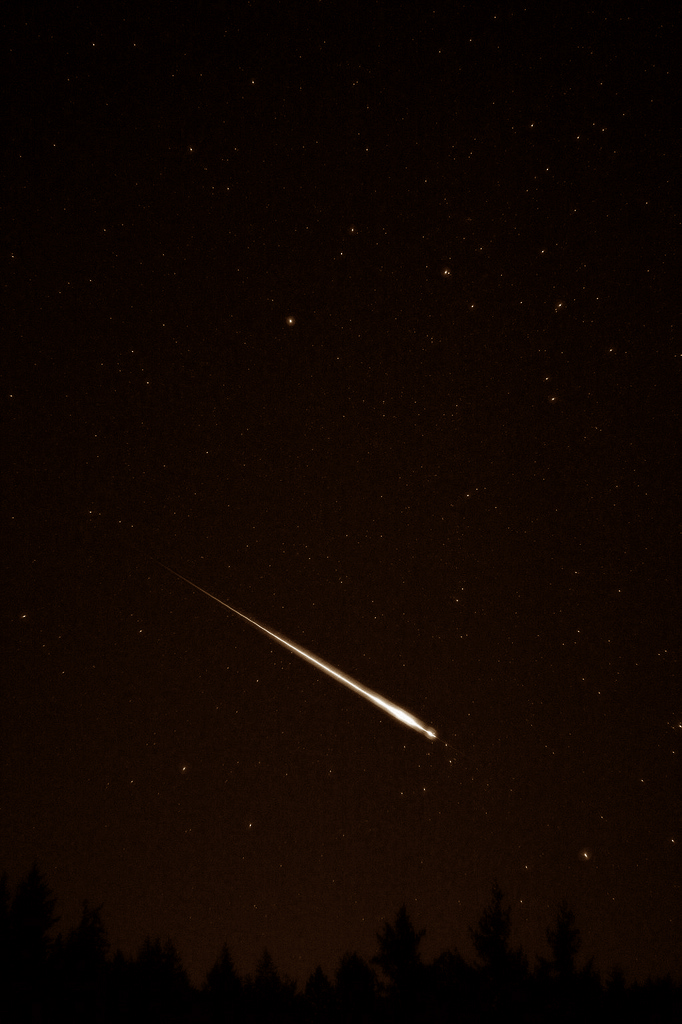
[HOME] [ISSUE] [ARCHIVES] [ABOUT] [GUIDELINES] [BLOG] Asteres Planetaiby Amal El-MohtarAncient Greek astronomers coined the term asteres planetai (ἀστέρες πλανῆται), or "wandering stars", for celestial bodies which appeared to move across the sky. I.  I used to think I was a star.
I used to think I was a star.I used to think I am only visible at night. I used to think that when the world's face turned from the sun, blinking narrow eyes at an emptied sky, there would I be, pulsing with my own light. But I am not a star. II. My depths and surfaces are scored with meteoric phrases, burning on entry, blazing, unexpected. It's only a phase. Disgusting. Unnatural. Not while you're under my roof. These grooves, these lakes, these hills and valleys wander with me, warp my weight, tilt my axis by small degrees that make all the difference. In these ways, too, I am not a star. When the sun's beams ebb from the sky like tidal fingers, I shine— but still I am not a star. III. Stars, like the sun, know their place. Because they can trace with beautiful precision their distance from each other, they demand to know their distance from me. I shake my head, behold my shining feet. I have no fixed abode. I make my home of motion— I cannot stand still. And my light— You are a star. You are like us. Stay with us in the dark. Everyone will see you for what you are. I love the dark. But if I were to stand still in the dark and look like a star, I would only be half myself, and though I yearn for them with my core and my gravity, and I am full, so full, of heat, I am not a star. IV. I do not fall like stars do. Stars fall out of place, and mourn the loss—I fall in to place. When the falling has me, I twist my body into orbit, make a sun of my love, feel my face become bright with theirs. If I love in the dark, I seem a star. If I love in the day, I do not. A sun, after all, is a star who has chosen never to be seen in the dark. V. At noon I look like what the world calls a woman. I wander from the sky on to roads warm with day, see my arms brown with it. By day I meet a creature patient as the morning, and as kind, with sun-sky eyes, a gentle mouth. I fall. We wander graveyards, seashores, talk of kings and cormorants, hold each other's hands. I tell my sun-bright creature that in the dark, I glow. I shine. But you are not in the dark, observes my creature. I speak of the beauty of the stars, of my longing to wander always near them, of how, though I am not a star, I gleam like them in the dark. You do not gleam with me, says my creature. I do. I do. But you eclipse me. You are so bright— and you live within the day— and you know nothing of the dark— if I stay with you, encircle you, if I stay fallen in this place with you, I will never be seen in the dark again, never shine with stars again. Just a phase, as if the moon did not have more than a face, as if to orbit is to stand still— you're fixed now and you faked it and your light was our reflection. My creature's hands encircle my face, shade it from the sun, coax a shining from it: I am not afraid of the dark. VI. I used to think I was a star. I used to think I am only visible at night. But, strange to find— there are times in-between, lights by which I can be seen. I learn new words to tell my hours: dusk and dawn and twi and gloam, wander through them holding hands, burning to be known. Amal El-Mohtar is an Ottawa-born Lebanese-Canadian, currently pursuing a PhD in the UK. She is a two-time winner of the Rhysling Award for Best Short Poem, and has been nominated for the Nebula award. She is the author of The Honey Month, a collection of poetry and prose written to the taste of twenty-eight different kinds of honey; her poems have also appeared in multiple venues online and in print, including Stone Telling, Mythic Delirium, and Apex. She also edits Goblin Fruit, an online quarterly dedicated to fantastical poetry. You can find her online at amalelmohtar.com. Photography: adapted from 2009 Leonid Meteor, by Ed Sweeney. 
|